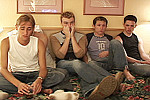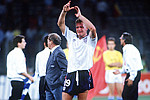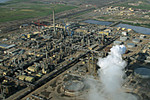 Shadows off the beaten path
Shadows off the beaten pathONE NIGHT IN TURIN | PETROPOLIS
< < D O C S > >
last update 3.May.10
See also: SHADOWS FILM FESTIVAL
 R E V I E W B Y R I C H C L I N E
R E V I E W B Y R I C H C L I N E
with Zac Adams, Jonathan, JC, Tim, Chuck, Charlie, Sean, Kevin, Georgie, Michael Towers, Sherri Anderson, Louise Walker, Ron Walker
 release US 9.Jun.09 nylgff,
release US 9.Jun.09 nylgff, UK 10.May.10 dvd
10/US 1h33
 This intriguing documentary follows the life of a group of guys who live in an Orlando house where their every move is captured on webcam. It touches on some heavy issues, but is ultimately observant rather than telling.
This intriguing documentary follows the life of a group of guys who live in an Orlando house where their every move is captured on webcam. It touches on some heavy issues, but is ultimately observant rather than telling.
Zac Adams started a web journal in the 1990s, which developed into College Boys Live, a membership website where viewers can watch and chat with guys aged 18-22. Everything happens on-camera, including their sex lives. And the guys are required to chat naked for a few hours every day. So of course, the neighbours accuse them of both pornography and prostitution, driving them from their home. And the problems continue at their new house. But it's the internal conflicts that make life most difficult for them all.
There's no narration, although the guys often talk to the camera about their experiences. What links these guys together is that they're all lost souls, separated from their families and looking for a place to call home. And as the film progresses, a couple of them become central figures, most notably the mercurial JC, who seems to attract sometimes violent conflict. By contrast, Tim is a nice guy struggling because Charlie, one of the members, has turned into a possessive stalker.
The film gives us a glimpse into this life rather than offering any resonant observations. Adams' claim that he's just helping these guys find themselves feels only partially true. Of course, having people watch 24-hours-a-day provides a sense of acceptance, but its eerily temporary, and the film doesn't really deal with what happens to these guys after they move on. Although a six-years-later epilogue adds some perspective.
A gentle pace and meandering approach make the film feel rather long and aimless, although it does find mini-narratives in JC's experiences (including a trip to visit his family in Michigan) and in the group's legal struggles. But for all the community opposition and media fear-mongering, this seems more like a dysfunctional makeshift family than a sex business. Perhaps this is due to the way the filmmakers are so prudish about nudity; it's shot and edited like a made-for-MTV doc. In other words, it's a film about a house full of cameras that doesn't feel voyeuristic. Which is very odd indeed.
6.Apr.10
 R E V I E W B Y R I C H C L I N E
R E V I E W B Y R I C H C L I N E
prd Ashley Jones
with David Bond, Duncan Mee, Cameron Gowlett, Katie Bond, David Blunkett, David Davies, Phil Booth, Frank Ahearn, Henry Porter, Ian Angell, Timothy Garton Ash, Helena Kennedy
 release US Mar.10 sxsw,
release US Mar.10 sxsw, UK 29.Apr.10
10/UK C4 1h20
 This lively British documentary is assembled in an entertaining way that keeps us gripped while it explores big issues that affect our everyday lives. Although the film's perhaps too tricky for its own good.
This lively British documentary is assembled in an entertaining way that keeps us gripped while it explores big issues that affect our everyday lives. Although the film's perhaps too tricky for its own good.
To test the reach of the information-gathering systems, David Bond leaves his pregnant wife Katie and young child behind and drops off the grid. He assigns a team of top private investigators (led by Mee and Gowlett) with the task of tracking him down. But can he have both a normal life and true privacy or is everything about him already publicly available? And how have we let society get to this point?
This central story is told like a somewhat over-hyped thriller, shot with gimmicks that add overwrought urgency, even though there's never any actual tension. It doesn't help that the narrative is interrupted with clips from interviews Bond conducted before going on his odyssey. The crosscutting is rather jarring, even though the material is all very strong, adding humour and context through natural interaction. The best scenes are the fly-on-the-wall conversations between Bond and his wife.
The film is sparked by the fear that the data out there could be used against us. We don't even think about the information stored about us until something happens; privacy isn't an issue until it's violated. But everyday things we do like logging into Facebook, buying things online or talking on our mobile phones leave us vulnerable to people trying to hack into our lives. Plus surveillance videos, our rubbish and DNA we leave behind us wherever we go. And all of these little details can be put together to make a terrifyingly thorough picture of us.
As he explores this, Bond's inquisitive curiosity is infectious. The most chilling sequences feature people who have found themselves with criminal records due to data-collection errors. But it's also frightening to see the massive quantity of information businesses and government agencies keep in storage. And as David's adventure leads him to a freaky cabin in Wales, he feels paranoid and, ironically, exposed. Clearly privacy isn't worth this, especially when it's impossible to live a normal life without leaving a data trail.
18.Apr.10
 R E V I E W B Y R I C H C L I N E
R E V I E W B Y R I C H C L I N E
prd Victoria Gregory
narr Gary Oldman
with Bobby Robson, Paul Gascoigne, Gary Lineker, Chris Waddle, Terry Butcher, John Barnes, Bryan Robson, David Platt, Colin Moynihan, Jack Charlton, Diego Maradona, Jonathan Ross
 release UK 7.May.10
release UK 7.May.1010/UK 1h37
 These filmmakers may be guilty of being fanatical about football but, for a narrative documentary, this is a remarkably entertaining film even for non-fans. And it does manage to evoke the passion for the beautiful game.
These filmmakers may be guilty of being fanatical about football but, for a narrative documentary, this is a remarkably entertaining film even for non-fans. And it does manage to evoke the passion for the beautiful game.
The movie's thesis is that the 1990 World Cup semi-final in Turin, between England and West Germany, was a pivotal moment in English football history. And they really work to make their case, starting with the economic and political chaos in Britain at the time, along with national outrage over England manager Bobby Robson, fuelled by vicious tabloid headlines. People were still feeling bruised by Maradona's Hand of God (in the 1986 World Cup quarter-final), and no one trusted the new hothead star Paul Gascoigne.
From here the film documents the stages of the World Cup match-by-match, goal-by-goal, from the lows of the opening scrap against Ireland to a remarkable victory against Belgium. All while English hooligans rampaged outside the stadiums, outdone only by the heavy-handed Italian riot squads. The filmmakers assemble this with energy and pace, adapting TV footage in a gorgeously cinematic way and building a strong central plotline that's fuelled by Oldman's almost poetic every-bloke narration.
As the Turin confrontation approaches, the film's snappy editing and clever song score keep us gripped. And we even have a few villains in the story: besides the Italian police, there's the destructive British press undermining morale with deliberately false stories and sensationalised commentary. But as the team comes together, even journalists come on-side by the night of the semi-final. What follows is surprisingly emotional, presented by the filmmakers in an overwrought way that actually generates a lump in the throat.
The film's painstaking detail is somewhat obsessive, but it adds a sense of zealous fervour to the film that lifts it above most documentaries. And the footage is remarkable: from the training grounds to out-of-hours poolside antics, we catch a sharp sense of the footballers' larger-than-life personalities, constantly punctuated by Robson's interviews and reporters' comments. Whether this was actually the "biggest match of a generation" is debatable, but by the time the players are taking their tie-breaking penalty shots, we vividly feel the weight of a whole nation's expectations.
20.Apr.10
 R E V I E W B Y R I C H C L I N E
R E V I E W B Y R I C H C L I N E
prd Sandy Hunter, Laura Severinac

release Can 22.Jan.10,
UK 14.May.10
09/Canada Greenpeace 43m
TORONTO FILM FEST
 Sumptuous cinematography gives this documentary an artistic feel that makes it almost hypnotic as mainly aerial cameras explore the world's second biggest oil reserve. But even with minimal text, it still makes its point with elegant simplicity.
Sumptuous cinematography gives this documentary an artistic feel that makes it almost hypnotic as mainly aerial cameras explore the world's second biggest oil reserve. But even with minimal text, it still makes its point with elegant simplicity.
The Alberta tar sands hold so much oil that they have become the world's largest industrial, capital and energy project. And it could eventually become a mega-complex the size of England. But mining the valuable bitumen requires decimating a lush ancient forest and then creating vast lakes of toxic water in the process of separating sand from bitumen. We see all of this from above, gliding over the trees, water, fields and industrial works. Intriguingly, we never glimpse a single person on screen, only their impact on the environment. And the audio track is a delicate mix of ambient sounds and minimalist music.
Filmmaker Mettler, who photographed the similar-style MANUFACTURED LANDSCAPES, lets the images speak for themselves, using captions to tell us what we're seeing and to give us nuggets of information. There's also some final voiceover narration that adds historical context in an almost poetic way. But this is never politicised at all; the information is clear and dispassionate, almost eerily matter-of-fact, and the cinematography is spectacular as it simply takes in what is there without making any commentary. Even images of an enormous dump-truck driving through a ravaged strip-mine take on an unexpected elegance. Although we can hardly help but get the message.
As the film progresses, the scale of what we're seeing increases, and the sheer enormity of this project becomes deeply haunting, as does its potential expansion. Yet while it's impressive to see something that's being done on such a gigantic scale, we can't avoid the reality that this much devastation is truly horrific for the natural world. And the staggering scar in the landscape, created completely by humans, will not only never go away, but will continue to cause problems for the entire planet far into the future. And the clear, unvoiced question is this: are oil industry profits worth this level of destruction?
28.Apr.10


See also: SHADOWS FILM FESTIVAL
© 2010 by Rich Cline, Shadows
on the Wall